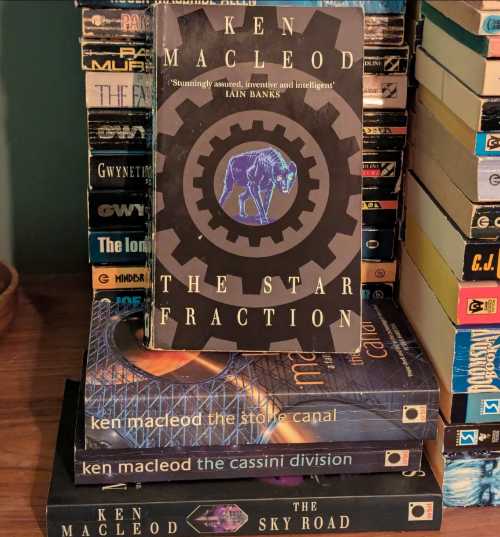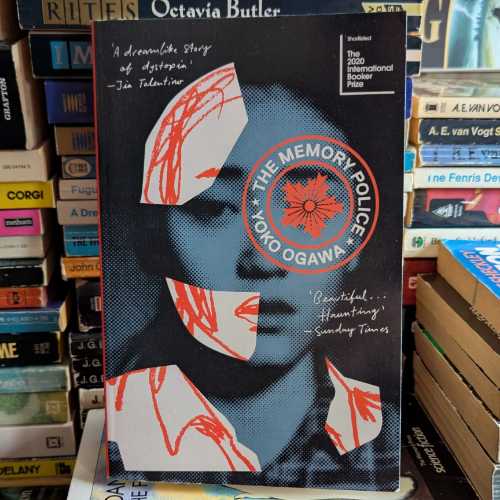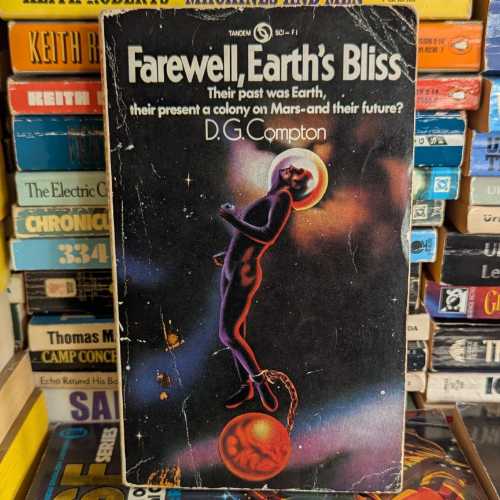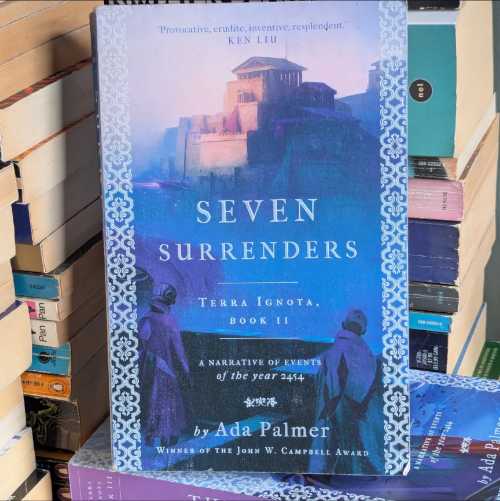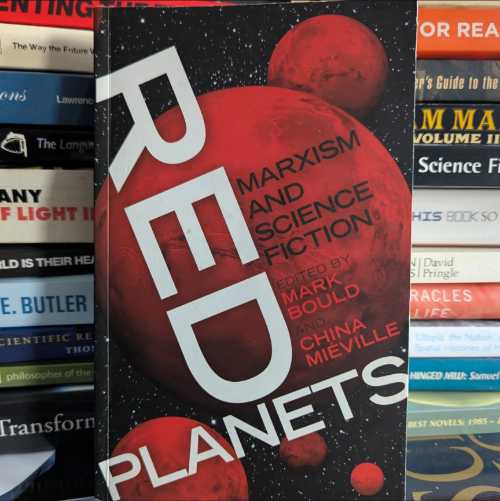The Star Fraction
★★★★★In the aftermath of World War III, the US/UN orbital platforms enforce an uneasy nuclear truce over the world. In the UK, the Republic has fallen, leaving a balkanised landscape of militarised polises touting every political ideology imaginable. Moh Kohn, a mercenary for hire, awakens an AI in the network triggering plans for a long-awaited revolution that will bring the Republic back to power.
Known for his heavily political SF, Ken Macleod’s first novel feels overexcited, throwing everything into the mix without creating the narrative space for satisfying resolution. There are big ideas here for 1995 — talking guns, AIs, artificial life, but all take a back seat to the didactic politics and frat-house cyberpunk aesthetic that dominates the page.
His worldbuilding is rich and deep, imagining a fractured and violent UK, riven by a free market of competing ideologies from Christian fundamentalists to libertarian socialists — it’s a steep curve to climb, particularly if you’re unfamiliar with Cold War and UK politics. The AI thread, seemingly so central, languishes, while the narrative practically sprints between enclaves, more eager to show off its political ideas than progress the plot.
It’s overly obsessed with drugs, communal living, and instant friendships — it feels like a university student’s idea of cyberpunk cool. As a result, characters’ ages seem unsettlingly fluid as they move from acting with deep experience and maturity to getting high and crashing on sofas, leaving a blurred afterimage that never coheres into strong identity.
However, I can forgive its weaknesses as the marks of a new author finding his voice. Yes, it’s a slog through dense political language to an unsatisfying ending. Yes, it’s a raw sensory tornado of politics, ideology, and cyberpunk that doesn’t settle long enough to germinate. But I enjoyed it as an origin story, evincing the creative potential to come in the subsequent Fall Revolution quartet as Macleod matures as a writer.
